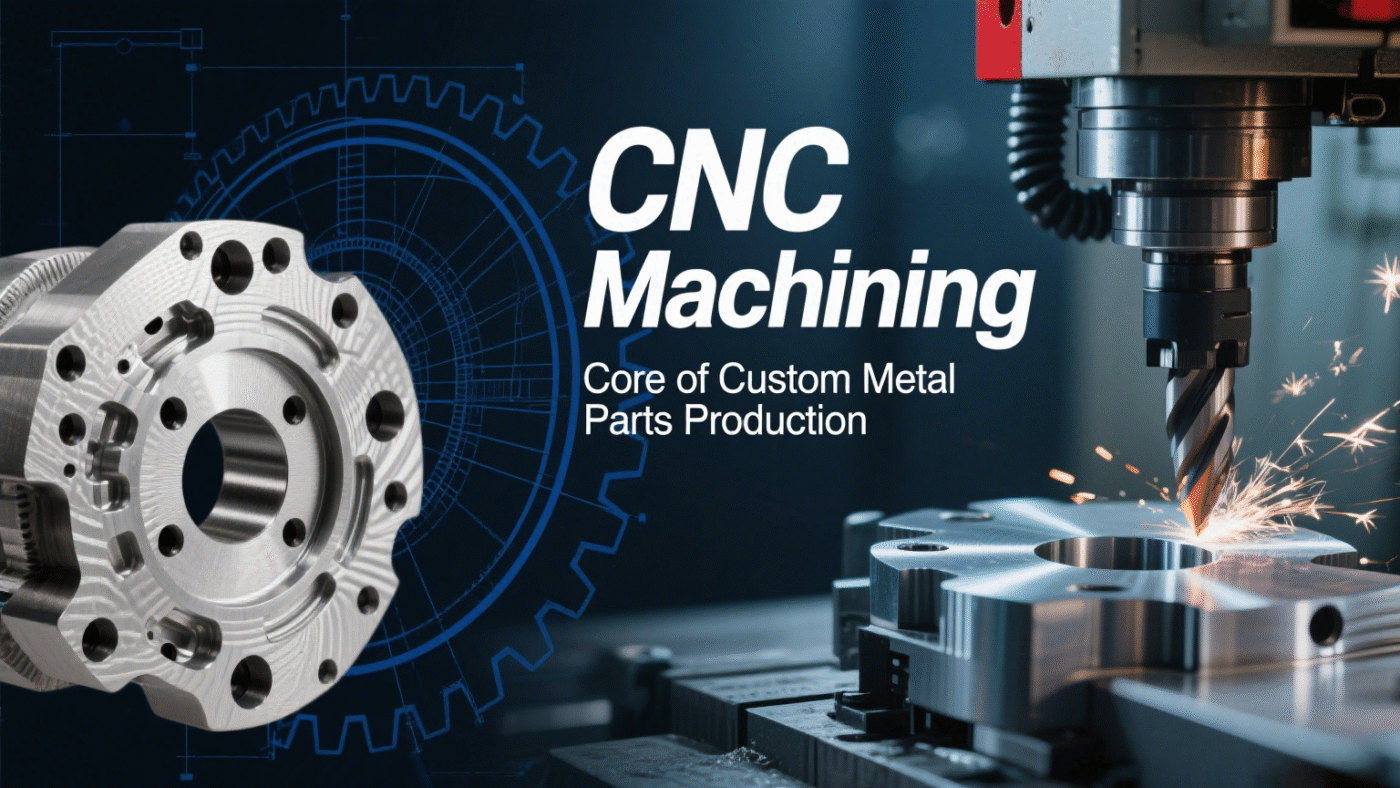In the field of custom metal parts production, CNC machining is core to custom ,CNC machining has always occupied an irreplaceable core position. Whether it’s complex mechanical components, high-precision industrial fittings, or small-batch customized products, CNC machining stands out as the preferred solution for manufacturers and engineers, thanks to its unique technical advantages. This article explores why it serves as the backbone of custom metal parts production.
1. Ultra-high Precision: Meeting Strict Custom Part Requirements
Custom metal parts often demand extreme dimensional accuracy and surface finish—for example, aerospace components may require tolerances within ±0.001mm, while medical device parts must be flaw-free.
CNC machining eliminates manual errors by using computer programs to precisely control tool movement, ensuring every part strictly matches design specifications. From intricate curves to tiny holes or precision threads, CNC machining delivers consistent, reliable results—something traditional methods (like manual turning) struggle to achieve.
2. Flexibility: Adapting to Diverse Custom Needs
Custom metal parts thrive on “small batches, varied designs”: one day you might need 10 stainless steel gears, the next 5 aluminum brackets, then titanium alloy 异形件 (special-shaped parts).
CNC machining excels here—simply adjust the computer program to switch between materials (steel, aluminum, copper, titanium) and part shapes. No need for complex fixture changes like traditional processing, drastically cutting setup time and making small-batch customization efficient.
3. Complex Structure Capability: Breaking Design Barriers
Many custom parts feature intricate geometries—internal cavities, staggered holes, irregular curves—to fulfill specific functions. These are nearly impossible with traditional methods, but CNC machining (especially multi-axis systems) handles them via multi-dimensional tool paths.
Examples include mold industry cores and automotive connectors, where CNC machining turns bold designs into reality, freeing engineers from manufacturing limitations.
4. Consistency: Ensuring Stability in Batch Customization
Even small-batch orders require uniform part performance and dimensions. CNC machining guarantees minimal batch-to-batch variation through standardized programming, avoiding the “slight differences” common in manual work.
This consistency is critical for assembly—precision instruments, for instance, rely on tight part fits, and CNC machining ensures seamless compatibility, reducing assembly rework.
5. Cost Control: Making Custom Production Affordable
Contrary to the belief that custom processing is costly, CNC machining is core to custom ,CNC machining cuts hidden expenses:
- Reduced labor: Automation lowers manual errors and labor costs.
- Higher material efficiency: Precise tool paths minimize waste.
- Faster turnaround: Quick program adjustments avoid rework from design changes.
For small batches, CNC machining often proves cheaper than traditional methods, making customization accessible to more businesses.
Conclusion
CNC machining is the “all-in-one solution” for custom metal parts. Its precision, flexibility, consistency, and cost-effectiveness make it indispensable across industries—from industrial manufacturing to aerospace. Wherever custom metal parts are needed, CNC machining remains the core technology.

